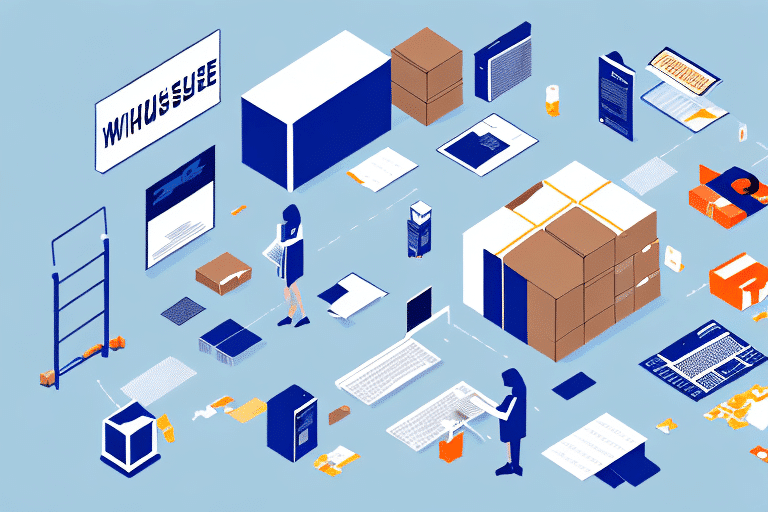3PLs: A Key Partner for Ecommerce Businesses in the Growth Phase
As ecommerce businesses expand, one of the most significant challenges they encounter is operational scalability. While growth brings excitement and opportunities, it can also lead to complexities in managing increased customer demand, intricate supply chains, and escalating shipping costs. To effectively navigate these challenges, many ecommerce businesses partner with third-party logistics providers, or 3PLs.
Why Ecommerce Businesses Need 3PLs During Growth
Third-party logistics providers (3PLs) play a crucial role in the scalability of ecommerce operations. A 3PL offers outsourced logistics services, encompassing inventory management, warehousing, transportation, and order fulfillment. By delegating these essential functions to a specialized third party, ecommerce businesses can concentrate on core activities such as marketing, product development, and customer support.
During growth phases, the surge in product demand can strain inventory management and order fulfillment processes. 3PLs provide scalable solutions that adjust to the evolving needs of the business, ensuring timely and efficient operations. Furthermore, 3PLs bring expertise in areas like international shipping and customs regulations, facilitating smoother expansion into new markets.
Understanding the Role of 3PLs in Ecommerce
Beyond alleviating operational burdens, 3PLs offer specialized infrastructure and expertise that ecommerce businesses might lack internally. For instance, leading 3PLs utilize state-of-the-art warehouses, extensive transportation networks, and advanced software with data analytics capabilities. These resources help optimize operations, reduce costs, and enhance overall efficiency.
Scalability is another significant advantage. As businesses grow, their logistics requirements become more complex, necessitating additional resources like warehouse space and diverse transportation options. 3PLs seamlessly manage this growth, ensuring that logistics support evolves in tandem with business expansion.
Additionally, 3PLs enable ecommerce businesses to penetrate new international markets by handling the complexities of cross-border shipping and compliance with local regulations. This global reach is instrumental in accessing broader customer bases and driving international sales.
How 3PLs Facilitate Operational Scalability
3PLs assist ecommerce businesses in scaling operations through several key mechanisms:
- Expanding Reach and Enhancing Delivery Speed: With multiple strategically located warehouses, 3PLs ensure products are closer to customers, reducing shipping times and costs. For example, having warehouses across different regions can decrease the average delivery time by up to 20%.
- Efficient Inventory and Supply Chain Management: Handling diverse product SKUs and maintaining optimal stock levels can be daunting. 3PLs utilize specialized software and expertise to streamline these processes, minimizing errors and ensuring product availability.
- Value-Added Services: Services such as kitting, assembly, and packaging customization allow businesses to offer tailored products without the overhead of managing these processes internally. This not only saves time and labor costs but also enhances product offerings.
- Cost Efficiency: 3PLs often negotiate better shipping rates with carriers due to their volume, passing on these savings to their clients and improving overall profitability.
Benefits of Partnering with 3PLs
Collaborating with a 3PL offers numerous advantages for ecommerce businesses:
- Cost Reduction: Outsourcing logistics can lead to significant savings by eliminating the need for investing in warehouses, transportation fleets, and logistics software.
- Access to Advanced Technology: 3PLs invest in cutting-edge technology to optimize their operations. Ecommerce businesses benefit from enhanced supply chain visibility, real-time tracking, and data-driven decision-making without the associated costs.
- Improved Cash Flow: By avoiding large upfront capital expenditures on infrastructure and logistics, businesses can better manage their cash flow and allocate resources to growth-driving activities.
- Expertise and Best Practices: 3PLs bring industry knowledge and best practices that can improve overall logistics performance, from reducing delivery times to enhancing customer satisfaction.
Choosing the Right 3PL Partner
Selecting an appropriate 3PL partner is crucial for maximizing the benefits of the partnership. Consider the following factors when evaluating potential 3PL providers:
Top Considerations
- Experience and Industry Expertise: Ensure the 3PL has a proven track record in the ecommerce sector and understands the specific needs of your industry.
- Scalability: The 3PL should have the capacity to support your business growth, accommodating increased order volumes and expanding product lines.
- Technology Integration: A robust warehouse management system (WMS) that integrates seamlessly with your existing platforms is essential for efficient operations.
- Geographical Coverage: Depending on your target markets, the 3PL should have warehouses and distribution centers in strategic locations to optimize delivery times and costs.
- Customer Service: Responsive and reliable customer support is vital for addressing issues promptly and maintaining smooth operations.
Evaluating Quality of Service
Assess the quality of service offered by potential 3PL partners through:
- Site Visits: Visiting the 3PL’s facilities provides insight into their operations, cleanliness, organization, and technological capabilities.
- References and Reviews: Speak with existing clients to gauge their satisfaction and the 3PL’s reliability.
- Performance Metrics: Evaluate key performance indicators (KPIs) such as order accuracy rates, delivery times, and return processing efficiency.
Contract Essentials
When finalizing a partnership, pay attention to critical contract elements:
- Service Level Agreements (SLAs): Clearly defined SLAs ensure both parties understand the expected performance standards.
- Pricing Structure: Transparent pricing models prevent unexpected costs and facilitate budget planning.
- Termination Clauses: Understand the terms and conditions for ending the partnership to avoid future disputes.
- Liability and Insurance: Ensure the contract outlines liability coverage and insurance provisions to protect against potential losses.
Overcoming Scaling Challenges with 3PLs
Scaling an ecommerce business involves navigating various challenges, including managing cross-border shipments, complying with diverse regulations, and integrating advanced technologies like automation and artificial intelligence. 3PLs provide the necessary expertise and infrastructure to tackle these obstacles effectively.
For example, handling international shipping requires an understanding of different customs laws and import/export regulations. A 3PL with global experience can streamline these processes, reducing delays and ensuring compliance.
Moreover, adopting automation technologies through a 3PL can enhance operational efficiency. Automated systems for inventory tracking, order processing, and shipment management minimize errors and accelerate fulfillment times.
Case Study: Achieving Rapid Growth with a 3PL Partner
Consider the example of BeanBliss, an online retailer specializing in artisanal coffee products. Faced with skyrocketing demand, BeanBliss partnered with a 3PL provider to scale operations without compromising on quality. The 3PL optimized their supply chain, reducing shipping times by 25% and operational costs by 15%. With enhanced fulfillment capabilities, BeanBliss expanded into new international markets, resulting in a 40% increase in revenue within a year.
Future Trends in 3PL and Ecommerce
The logistics landscape is continually evolving, influenced by technological advancements and changing consumer expectations. Key trends shaping the future of 3PLs in ecommerce include:
- Data Analytics and Machine Learning: Leveraging data to predict demand, optimize routes, and personalize customer experiences.
- Sustainable Logistics: Increasing demand for eco-friendly shipping options and sustainable packaging solutions.
- Automation and Robotics: Enhancing warehouse operations with automated storage systems and robotic order pickers.
- Drone Delivery and Autonomous Vehicles: Exploring innovative delivery methods to further reduce delivery times and costs.
Staying abreast of these trends allows ecommerce businesses to partner with forward-thinking 3PLs, ensuring they remain competitive in a dynamic market.
Building Strong Relationships with Your 3PL Partner
A successful 3PL partnership hinges on effective collaboration and mutual trust. Here are strategies to foster a strong relationship:
- Regular Communication: Maintain open lines of communication to address issues promptly and share updates.
- Clear Expectations: Define roles, responsibilities, and performance metrics to ensure both parties are aligned.
- Collaborative Planning: Work together on forecasting, inventory planning, and process improvements to optimize operations.
- Flexibility and Adaptability: Be open to adapting strategies as business needs evolve, ensuring the partnership remains relevant and effective.
Conclusion: Investing in a Reliable 3PL Partner for Sustainable Growth
Partnering with a dependable and experienced 3PL provider is essential for ecommerce businesses aiming to scale efficiently and sustainably. By outsourcing logistics functions, businesses can focus on growth-driving activities, optimize supply chain performance, reduce operational costs, and enhance customer satisfaction. Selecting the right 3PL partner and cultivating a strong, collaborative relationship ensures that the partnership yields maximum benefits, positioning the business for long-term success in the competitive ecommerce landscape.






















